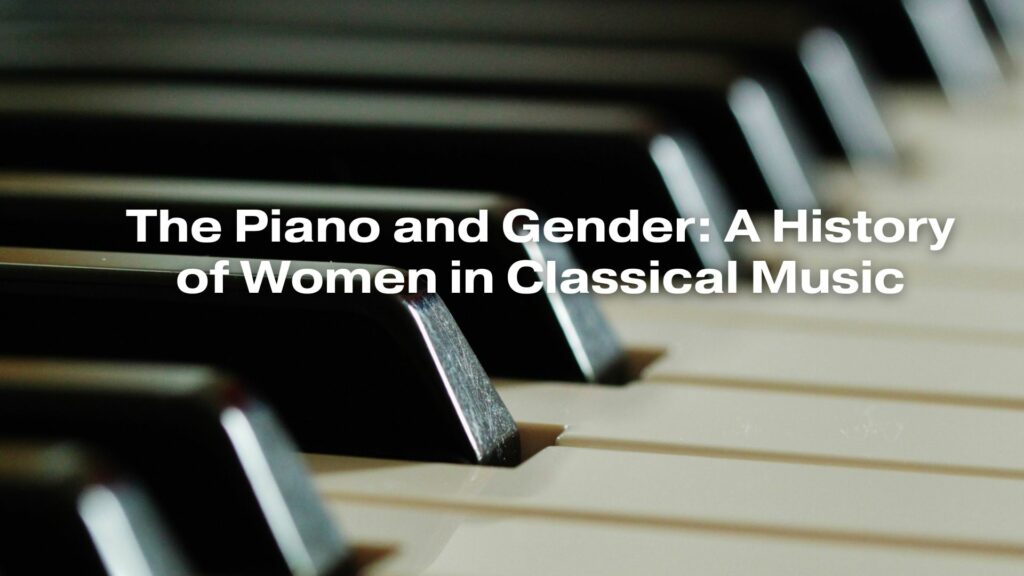The history of classical music is deeply intertwined with the piano, and it’s a history that reflects the evolving role of women in this art form. While classical music has often been associated with male composers and performers, women have made significant contributions to the world of piano music and have overcome societal barriers to establish themselves as accomplished pianists, composers, and educators. In this article, we’ll delve into the history of women in classical music and their enduring impact on the world of piano.
1. Early Pioneers:
- In the 18th and 19th centuries, women like Maria Szymanowska and Clara Schumann were celebrated pianists and composers. Clara Schumann, in particular, is renowned for her virtuosity and compositions.
2. Breaking Stereotypes:
- Women pianists like Fanny Mendelssohn and Amy Beach defied the gender norms of their time. Fanny Mendelssohn was a prolific composer, while Amy Beach was the first American woman to write a symphony.
3. The French Connection:
- In France, women like Cécile Chaminade and Lili Boulanger made significant contributions to piano music and composition.
4. Education and Advocacy:
- Many women, including Nadia Boulanger and Clara Haskil, became influential piano teachers, shaping the education of future generations of musicians.
5. Trailblazers of the 20th Century:
- The 20th century saw women like Martha Argerich, Alicia de Larrocha, and Maria João Pires rise to prominence as internationally acclaimed pianists.
6. Contemporary Champions:
- Contemporary female pianists, such as Yuja Wang, Hélène Grimaud, and Valentina Lisitsa, continue to make waves in the classical music world.
7. Composition and Creativity:
- Women composers like Sofia Gubaidulina and Judith Weir have enriched the classical piano repertoire with their innovative compositions.
8. Advocacy for Equality:
- Organizations like the Women’s Philharmonic and the International Alliance for Women in Music work to promote gender equality in classical music.
9. Inspiring Future Generations:
- Female pianists and composers serve as role models for aspiring musicians, inspiring more women to pursue careers in classical music.
10. Ongoing Challenges: – While progress has been made, gender disparities in classical music persist, with women composers and conductors still underrepresented.
11. Celebrating Diversity: – Efforts are being made to diversify the classical music landscape, emphasizing the contributions of artists from all backgrounds, genders, and cultures.
In conclusion, the history of women in classical music, particularly in the realm of piano, is a story of determination, talent, and resilience. Despite the historical limitations imposed by societal norms, women have made significant contributions as pianists, composers, educators, and advocates for gender equality in the world of classical music. Their enduring legacy continues to inspire and shape the future of classical piano music, providing a diverse and vibrant tapestry of artistic expression.

